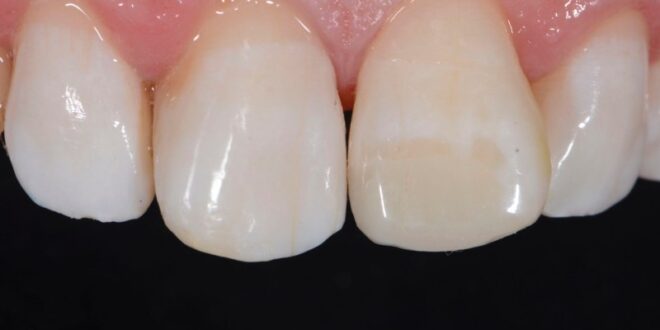Advanced Blending Techniques For Creating Professional Looking Photo Composites – 80% Off All Courses Today’s Biggest Sale of the Year 80% Off of All Courses Today’s Biggest Sale Most Popular Most Popular Most Popular Most Popular Most Popular Most Popular Most Popular Most Popular Most Popular Most Popular Most Popular Advertisement Advertisement Advertisement 80% Off All Colleges Biggest Sale of the Year 80% Off All Courses Today Biggest Sale of the Year 80% discount All courses day Biggest discount of the year 80% off All courses Today Biggest Sale of the Year 80% Off All Courses Today Biggest Sale of the Year 80% Off All Courses Biggest Sale of the Year Today
Blend mode is a powerful tool in Photoshop that allows users to create special effects and enhancements to their digital images.This pattern controls how the pixels in one layer interact with the pixels in the layers below it, resulting in a different look. By understanding how composites work and their various uses, you can open up endless possibilities for creativity and image editing.
Advanced Blending Techniques For Creating Professional Looking Photo Composites
Photoshop has many different compositing modes, each with its own effect on your image. These modes range from simple adjustments like exposure and balance to more advanced effects like color evasion and line burn. By experimenting with different combinations, you can Find new ways to enhance your photos and touch up your work.
Why Not A Single Image? Combining Visualizations To Facilitate Fieldwork And On-screen Mapping
Blend mode in Photoshop is essential for managing and enhancing your images.
Layers play an important role in composition. Each layer’s elements can be blended with the layers below it to create different effects.The blend mode affects how a layer’s color and priority interact with the layer below it.
There are three types of composites in Photoshop.Color Combination preserves the lightness and saturation values of the base layer while applying color from the layer.This mode is especially useful when changing colors without changing the brightness of the object.
Overlay blend mode is a combination of different modes and screen modes, increasing contrast and preserving the midtones of an image. This mode works well for adding texture or enhancing detail without affecting the midtones.
Amazon.com: Mastering Retouching & Mastering Compositing
Contrast blend mode is a group that includes Opaque, Soft Light, and Bright Light, etc. These models often adjust the ratio of layers to create different effects and can be useful for enhancing or stylizing an image.
The effect of a blending pattern is determined by calculating the base pixel values and rendering the blending process. Understanding these calculations can help you gain more control over the results of your photo editing and special effects creation.
In summary, Photoshop’s blend modes are important tools for enhancing your images by controlling the interaction of layers. By understanding basic concepts like layering, color, overlap, and contrast, you can use compositing techniques more effectively to create great results in your projects.
These combinations are intended to make the image brighter or darker. Some models include a light color that replaces the main color with a mixed color, if it is lighter, and a dark one that makes a difference. For example, the screen is brightened by inverting colors and then flipping.Dark colors and light colors select only a combination of dark colors or a color combination.
Pro Photo Manipulation Techniques In Photoshop! “creative Brain” Composite
Contrast blend mode is designed to improve the contrast of an image. Overlay multiplies or highlights colors based on their lightness, while soft light darkens or brightens according to the mixed color light , but has very different effects. Some other types include color burn, color evasion, bright light, linear light, and linear evasion.
The comparative blend mode focuses on comparing the image data.By matching the base and mixing the colors, you can create interesting effects. Contrast Subtracts dark colors from lighter colors. Isolation compares brightness to lighter or darker colors. Subtraction and division work by subtracting or dividing the base and mixing the values to create a very different look.
During this type of composition you may come across other types such as hue, color and saturation.This template works with color files and can add a lot to your Photoshop creations.
, is an important part of understanding the use of composites. This pattern plays an important role in blending the colors and highlights of a layer with the layer below it.With the 27 different blending modes available in Photoshop, many new adjustments and special effects can be achieved.
Mastering Complex Edits With Advanced Photoshop Selection Techniques
For example, using layers with a blend can change the look of your image. Layers are non-destructive, meaning you can use them without affecting the original pixels of the base layer or other layers. Combining patterns and editing techniques in your artwork and will fetch styles.
When working with textures, blend mode is especially useful for changing the texture pattern and details of your main image. Additionally, using a mask allows you to choose a blend of areas, allowing you to focus on certain areas of the image while controlling the original appearance of other areas.
In summary, Photoshop has endless possibilities to combine, modify and enhance the process to create beautiful images and special effects. Do not hesitate to explore them and open your mind.
Blend mode is important for adding visual effects to photos. By changing the color layer and exposure values, you can achieve special effects. A popular effect is “dodge and burn”, which changes highlights and shadows to create a more visible or beautiful effect.
Photoshop Masking Guide
Using the blend mode, we can create a vignette effect to draw attention to certain areas of the image.This involves blending a dark layer around the edges with the original image, focusing the viewer’s attention.
Blend mode can also improve the image quality by adjusting the colors, levels and curves.We can also use the composite model to enhance the image
To correct an appearance or color balance problem This helps to improve the overall look and feel of the image.
Also, by using the composite model in the adjustment process, we have more control over the specific image, such as the color gamut and tone. :
Advanced Data Science: 30+ Concepts
In our experience with Photoshop, knowing how to combine elements can enhance your work and improve the final result of your images.
First, when working with layers, it’s important to adjust the saturation, hue, and vibrance.These changes can be made using tools such as
Play an important role in advanced integrated systems.It is important to have a clean, clear selection to ensure that your blend mode is applied only to an area of your image
Finally, advanced users may also want to explore using composites in other Adobe applications such as InDesign.Integrating these skills across multiple platforms will result in better designs.
How To Create Realistic Light Rays In Photoshop
By following these tips and delving deeper into composition, we can achieve better results and be more productive with our Photoshop photos.
Blending modes in Photoshop affect how a layer’s colors and effects interact with the layers below it.By changing the composition type, we can achieve a different perspective and improve our editing Read more about composition.
In Photoshop, screen blending enhances an image by combining the brightness of two layers, while Overlay blend mode combines different modes and Screen mode improves contrast Check contrast to detail.
Blending mode can be used for adjustment, brush blending and background removal. By changing the layers that interact with each other, we have more control over the final image, resulting in a more beautiful and familiar use of composites.
Build A Photo Collage In Photoshop
Yes, Blending Modes in Illustrator work the same as in Photoshop. They affect how layers and elements interact. However, the specific interface and tools may differ slightly between the two applications. Read more about Blending Modes in Illustrator.
Blending mode doesn’t directly affect a layer’s opacity, but how its colors and effects interact with the layers below it. However, some combinations can create a more transparent look, depending on the color value and the selected mode Learn more about blending mode and opacity :
Blending mode is often used for color correction, adding texture or pattern, and blending images. They allow us to expand our creation by changing layers to achieve different effects. Explore the use of blending patterns in artwork.
Photoshop Portraiture and Composite Overlay FX Suite is the ultimate tool for creating beautiful portraiture and composite images with over 2,400
 Alveo Creative Blog Guiding users through techniques for enhancing images, retouching portraits, and mastering popular editing software
Alveo Creative Blog Guiding users through techniques for enhancing images, retouching portraits, and mastering popular editing software




